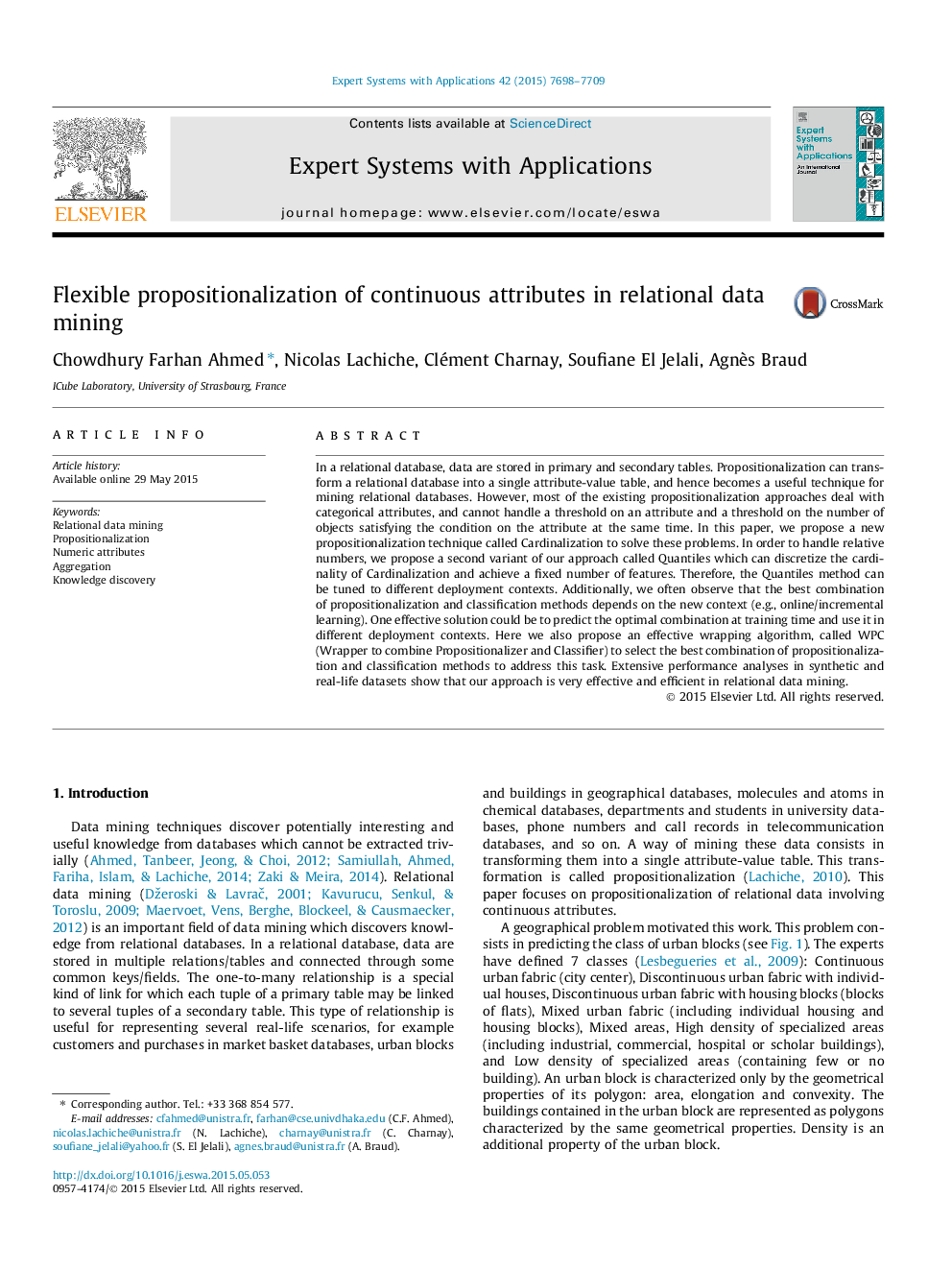ترجمه فارسی عنوان مقاله
گزاره ای کردن قابل انعطاف ویژگی های مستمر در داده کاوی رابطه ای
عنوان انگلیسی
Flexible propositionalization of continuous attributes in relational data mining
| کد مقاله | سال انتشار | تعداد صفحات مقاله انگلیسی |
|---|---|---|
| 46038 | 2015 | 12 صفحه PDF |
منبع

Publisher : Elsevier - Science Direct (الزویر - ساینس دایرکت)
Journal : Expert Systems with Applications, Volume 42, Issue 21, 30 November 2015, Pages 7698–7709
ترجمه کلمات کلیدی
داده های رابطه ای و استخراج - ویژگی عددی - تجمع - کشف دانش
کلمات کلیدی انگلیسی
Relational data mining; Propositionalization; Numeric attributes; Aggregation; Knowledge discovery

